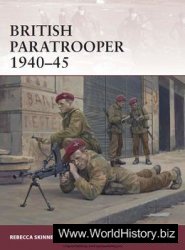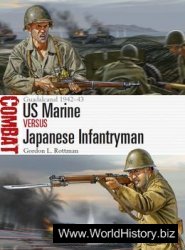Ukraine owes its independence to a combination or coalescence of two factors. First, there were external, “objective” conditions on which the Ukrainians depended, but which they influenced only to a limited degree. In 1991 those conditions, or circumstances, included a major political crisis in Moscow; the rise of other non-Russian nations, especially the Balts; and the establishment of formal Russian-Ukrainian relations before the August 1991 crisis. It was very important, too, that at that particular historical juncture democratic nationalists in Russia
First published in The Successor States to the USSR, 1995.
316 Russia, Ukraine, and the Breakup of the Soviet Union
Were defining the Russian national agenda in opposition to the defenders of the imperial Soviet “center” and also against extreme nationalists of the right. Second, there was the domestic or internal scene; in other words, that “subjective” factor for which the Ukrainians themselves were primarily responsible. As we shall argue below, the Ukrainians seized the arising opportunities, some of which they did not create themselves. They mobilized their forces and built coalitions among former rivals and in the end attained their goal of national independence without having to fight against outside forces, and without civil war or unrest.
The August 1991 coup would not have ended so fast, or it might even have succeeded, had there not emerged, earlier, a conflia between the Russian Federation, led by Boris N. Yeltsin, and the government of the Soviet Union, personified by President Mikhail S. Gorbachev. This conflict reflected the Russian nation’s rejection of communism and by extension—or so it looked in 1991—its desire to abandon the idea that Russia had to be an empire. The split between Russia and the USSR— “Russia’s secession from the Soviet Union,” as some put it—also had a personal dimension, which took the form of a struggle between two leaders for power. Many observers, especially in the West, did not notice that the contenders did not fight for the same job: They represented two different political entities—Russia versus the Soviet Union. Thus it was a triple confrontation: Yeltsin versus Gorbachev; democracy against communism; and the national liberation of Russia against the “center” or empire. There were reasons to believe that the Russians wanted to build their own nation-state, to make Russia a “normal” country, thus breaking once and for all with the old nationalist myth that for the Russian people a multinational empire was the only acceptable home.'
The August coup, although an “external” factor for Ukraine, was nonetheless connected to what was going on in Ukraine. The plot had been hatched by diehard Communists as a response to what they saw as a gradual subversion of the Soviet Union that had begun in the late 1980s. In their view, Ukraine played a major part in that subversion of the Soviet state. Indeed, the Ukrainian republic played a role in 1991, when, in June, its parliament decided that Ukraine would not sign the Union treaty on August 20, 1991. The coup organizers rightly viewed the Ukrainian decision for what it was: It amounted to Ukraine’s de facto withdrawal from the Union. As some plot leaders have since ad-
Nation-Building in Ukraine: Problems and Prospects 317
Mittcd, Ukraine’s June decision was on their minds when they decided to act.
This decision had its antecedents, however. There is no room in this brief summary for an account of those developments in Ukraine prior to 1991, especially in the Gorbachev era, that made Ukraine capable of acting as it did in the closing months of 1991. The Chernobyl nuclear accident created the intellectual and psychological climate in which it would be possible to think about a break with Moscow. The rise of Rukh, in 1989, and the fact that Kyiv party leaders allowed Rukh’s founding congress to be held in Kyiv (Rukh’s Belorussian counterpart held its first congress in Lithuania) inaugurated the demonopolization of the public discourse. Leonid M. Kravchuk, in his role as parry ideology chief, engaged Rukh in public debate, allowing his opponents access to television. That he spoke against Rukh mattered less in the long run than the fact that in so doing he made Rukh a legitimate part of the political scene.
The parliamentary election of March 1990 sent about one hundred noncommunist representatives to Kyiv. Very different people met face to face in the halls of the parliament—including former prisoners and their former persecutors. In local elections, the opposition, led by Rukh, won overwhelmingly in West Ukraine, and something resembling a formal and peaceful transfer of power from communist to national-democratic hands did take place on the provincial level in Lviv and several other western regions.
Following Russia’s declaration of sovereignty in June 1990, the Ukrainian parliament adopted its own declaration to the same effect. It envisioned Ukraine’s neutrality and spoke about Ukraine’s right to have its own military. The declaration publicized the concept of “the people of Ukraine” as an entity embracing all of its citizens, without regard to ethnic or religious affiliation. Early in 1991, the Kyiv parliament in faa sabotaged Gorbachev’s referendum regarding the Union by adding a specific “Ukrainian” question about Ukraine’s sovereignty. For Ukrainian nation-building, these were significant actions. For the first time in its history, Ukraine had a parliament in which all of its regions were represented, however imperfectly. East met west. Communists sat in one hall with anti-Communists, and nationalist poets learned to talk politics with parry officials and plant managers. Ukraine was getting its first lesson in noncommunist politics and was beginning to create rudiments of a tolerant and pluralistic political culture. For the national self-esteem 318 Russia, Ukraine, and ihc Breakup of the Soviet Union
Of the newly independent Ukrainians, it was a source of satisfaction that their independence was also a result of their own choices and actions. At the final stage of Ukraine’s march to independence, the national-democratic opposition in the parliament managed to reach an accord with important segments of the Soviet Ukrainian establishment on how Ukraine should respond to the events in Moscow on August 19 and after, even though such a decision was not easy to make, considering the G>mmunists’ record.
The Ukrainians knew that there was a fundamental difference between the situation in Moscow and that in Kyiv. In Moscow, opponents of the coup could and did raise the national flag of Russia against the communist center. They brought that flag with them as they talked to the troops, appealing to their Russian patriotism. But what worked in Moscow would have created a disaster in Kyiv. Those who criticize Kravchuk, or the Kyiv establishment in general, for their alleged “wait and see” position at the time when Yeltsin actively opposed the coup forget one essential thing. If the Ukrainians in Kyiv had imitated the Russians in Moscow by appealing to the Soviet army in Ukraine in the name of Ukraine's freedom, they would have assured the army’s prompt and decisive intervention in favor of the coup. It was one thing to ask the army in Moscow to liberate Russia from communism, and quite another to ask it in Kyiv to liberate Ukraine from communism and from Russia. In Ukraine communism and Russia were one and the same thing.
On August 24, 1991, Ukraine’s Supreme Soviet, or Rada, adopted a declaration of independence by an overwhelming vote, even though the parliament had a Communist party majorit)’. The forces of national democratic opposition and their Communist opponents proved capable of agreeing on Ukraine’s break with Moscow. This called for a willingness to compromise on both sides. One last-minute deal provided that the question of independence would be submitted to a popular vote on December 1. (On December 1 Ukraine also elected its first president in a contested and free election.) The subsequent popular vote was overwhelmingly for independence. By the end of December, the Soviet Union was no more.*
Kravchuk and his friends, however, remembered what it was that had forced them to aa differently from Yeltsin during the coup. A decision was made, within days after the coup, to establish a Ukrainian armed force. High-ranking officers serving in the Soviet military in
Nation-Building in Ukraine: Problems and Prospects 319
Ukraine agreed to undertake the task of creating a Ukrainian army, nav7, and air force. The winning over of the military (and, one may presume, of key elements of the police) after the accord between the opposition and the pro-independence Communists was a landmark step on Ukraine’s march to independence.




 World History
World History









